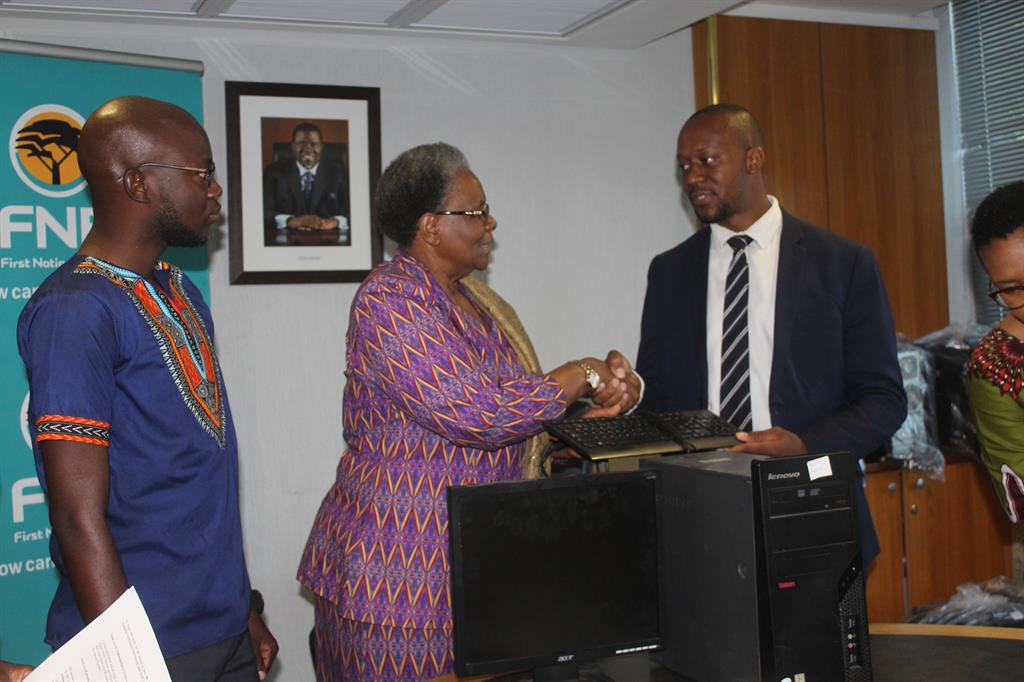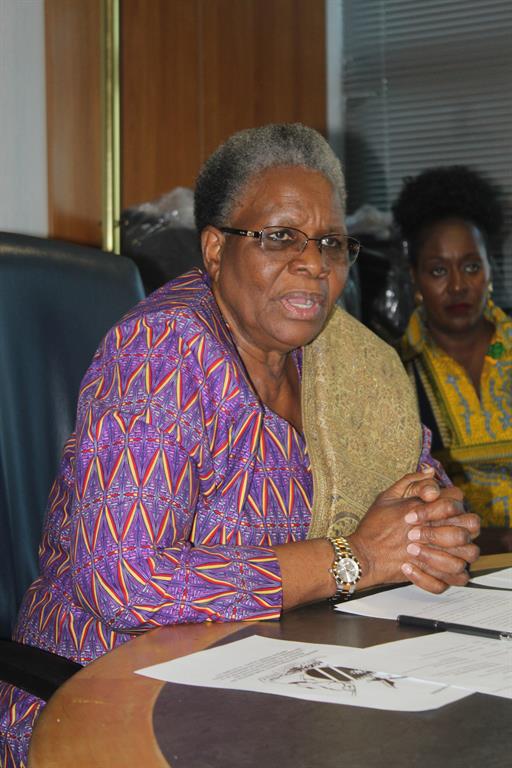Improving education with computers
The use of computers is at the centre of an education revolution and creates room for new forms of content delivery.
Justicia Shipena First National Bank's FirstRand Namibia Foundation Trust handed over ten computers to Mwandindi-Etuwata Amkongo Primary School on 10 October at the ministry of international relations.
The school, formerly known as Epeke Primary is situated at Lilya village in the Okankolo constituency of the Oshikoto Region. The school received electricity in August 2015.
Speaking at a press conference, Vekondja Kuzee, who is the head enterprise architecture at FNB, said the importance of education and acquiring skills has increased over the years.
The use of technology is at the centre of this revolution, creating room for new forms of educational content delivery and their accompanying teaching methods, he said.
“The foundation is pleased to assist the children of Mwandindi-Etuwata Amkongo Primary School with these computers. As a business, FNB has the responsibility to contribute to skills development in the nation, for prosperity and ensuring a sustainable inclusive economy,” Kuzee said.
He further explained the ICT sector is regarded by government as one of the game-changers that can ensure access to scare resources in Namibia.
“ICT will continue to transform economic and social activities and the action of handing over these computers to the school can be seen as one of the steps towards an increased uptake and usage of ICT,” he said.
Kuzee added they commend the leadership of the school, as ICT plays an important role in equalising the life chances of individuals.
He said improving the quality of education requires further improvements in early childhood development, as well as an investment in school infrastructure.
International relations minister Netumbo Nandi-Ndaitwah, who is also the patron of the school, said the action that FNB took is a response to the minister of education's call for people to be friends of education.
“There is no doubt that learners will be exposed to computer skills and will be able to do research, as well as understand different programmes at an early stage of their education,” she said.
Nandi-Ndaitwah said she believes there are many public and private offices with computers that are no longer in use.
At the same time, there are young people in those offices who are running the IT departments, which means these computers can be refurbished in-house at less cost or should be made available to schools, mainly in rural areas with electricity.
“I am therefore challenging all of us to make an effort to ensure that Namibian learners must have access to computers at an early stage of their education, instead of seeing them for the first time when they enter institutions of high learning.”
Nandi-Ndaitwah also urged the school to put the computers to good use.
Abraham Vincent Kamati, junior primary phase head at Mwandindi-Etuwata Amkongo Primary, showed his gratitude and appreciation toward the management of FNB Namibia.







Comments
My Zone
No comments have been left on this article